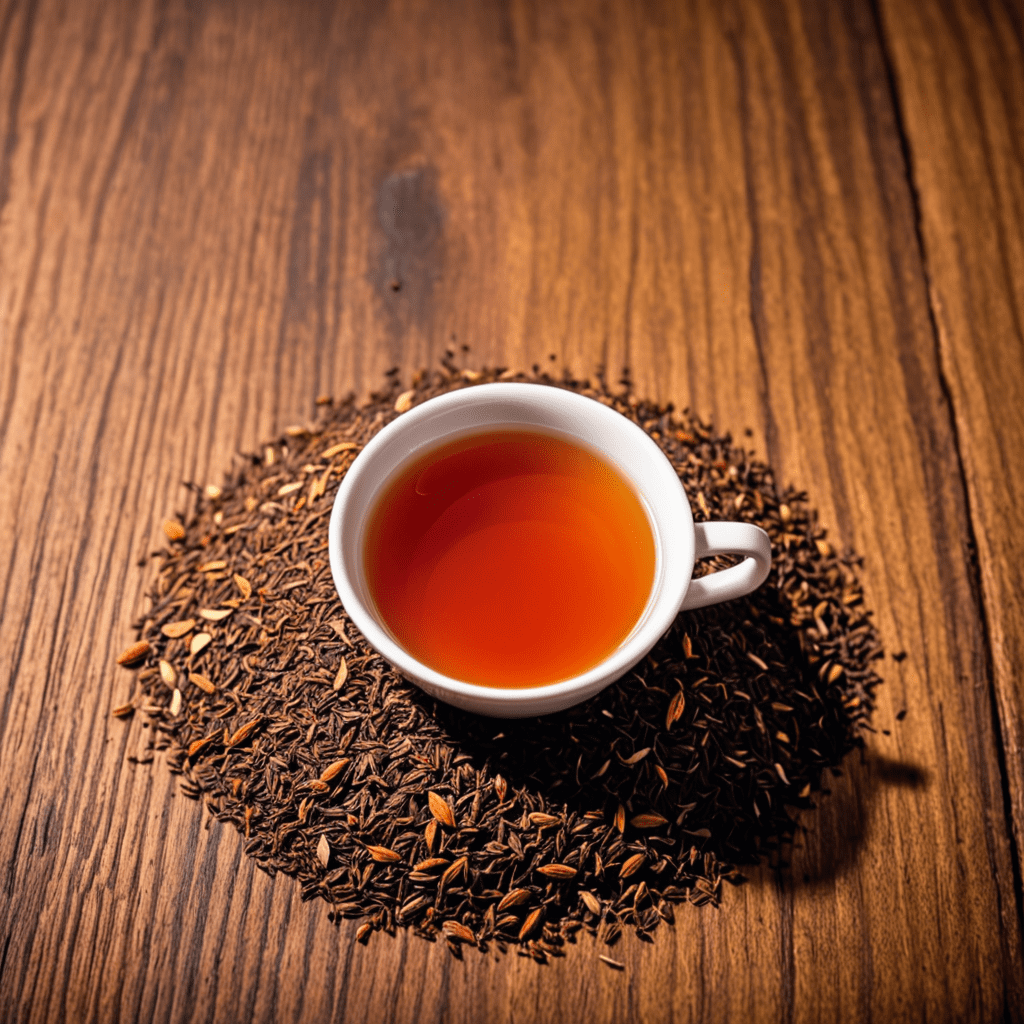Rooibos Tea: A Closer Look at Its Antioxidant Properties
Rooibos tea, also known as red bush tea, is celebrated not only for its distinct taste but also for its potential health benefits. One of the key factors contributing to its health properties is its rich antioxidant content. Let’s delve deeper into how Rooibos tea’s antioxidant properties can positively impact your well-being.
The Power of Antioxidants
Antioxidants are compounds that help protect our cells from damage caused by free radicals, unstable molecules that can lead to oxidative stress in the body. Rooibos tea is packed with a variety of antioxidants, making it a valuable addition to your daily diet.
Unique Antioxidants in Rooibos Tea
Rooibos tea contains unique antioxidants such as aspalathin and nothofagin, which are not found in other types of tea. These antioxidants have been linked to various health benefits, including anti-inflammatory and anti-cancer properties.
Anti-Aging Effects
Consuming Rooibos tea regularly may help combat the signs of aging due to its antioxidant content. By neutralizing free radicals, Rooibos tea can potentially aid in maintaining youthful skin and overall well-being.
Cardiovascular Support
Studies suggest that the antioxidants in Rooibos tea could play a role in promoting heart health. By protecting against oxidative stress and inflammation, Rooibos tea may contribute to a healthier cardiovascular system.
Immune System Boost
The immune-boosting properties of Rooibos tea are attributed to its antioxidants, which can help strengthen the body’s defense mechanisms. Including Rooibos tea in your daily routine may support a robust immune system.
How to Incorporate Rooibos Tea into Your Routine
Whether you prefer it hot or cold, Rooibos tea is a versatile beverage that can be enjoyed throughout the day. You can brew it solo or mix it with other ingredients to create flavorful blends that suit your taste preferences.
Conclusion
Rooibos tea’s antioxidant properties make it more than just a soothing drink—it’s a potential powerhouse for your health. By regularly indulging in this flavorful tea, you can harness the benefits of antioxidants to support your overall well-being.
FAQs About Rooibos Tea’s Antioxidant Properties
What are antioxidants and why are they important?
Antioxidants are molecules that help neutralize harmful free radicals in the body, protecting cells from damage. They play a crucial role in reducing oxidative stress and inflammation, which are linked to various chronic diseases.
How do antioxidants benefit our health?
Consuming antioxidants through foods like Rooibos tea can help boost the immune system, improve heart health, and reduce the risk of conditions like cancer and diabetes. They also support skin health and overall well-being.
What specific antioxidants are found in Rooibos tea?
Rooibos tea is rich in polyphenols, such as aspalathin and nothofagin, which are unique to the plant. These antioxidants have potent anti-inflammatory and antidiabetic properties, making Rooibos tea a valuable addition to a healthy diet.
Is Rooibos tea a good alternative to other antioxidant-rich beverages?
Yes, Rooibos tea is an excellent caffeine-free option for those looking to increase their antioxidant intake. Its unique profile of antioxidants, along with its delicious taste and versatility, makes it a popular choice among health-conscious individuals.



